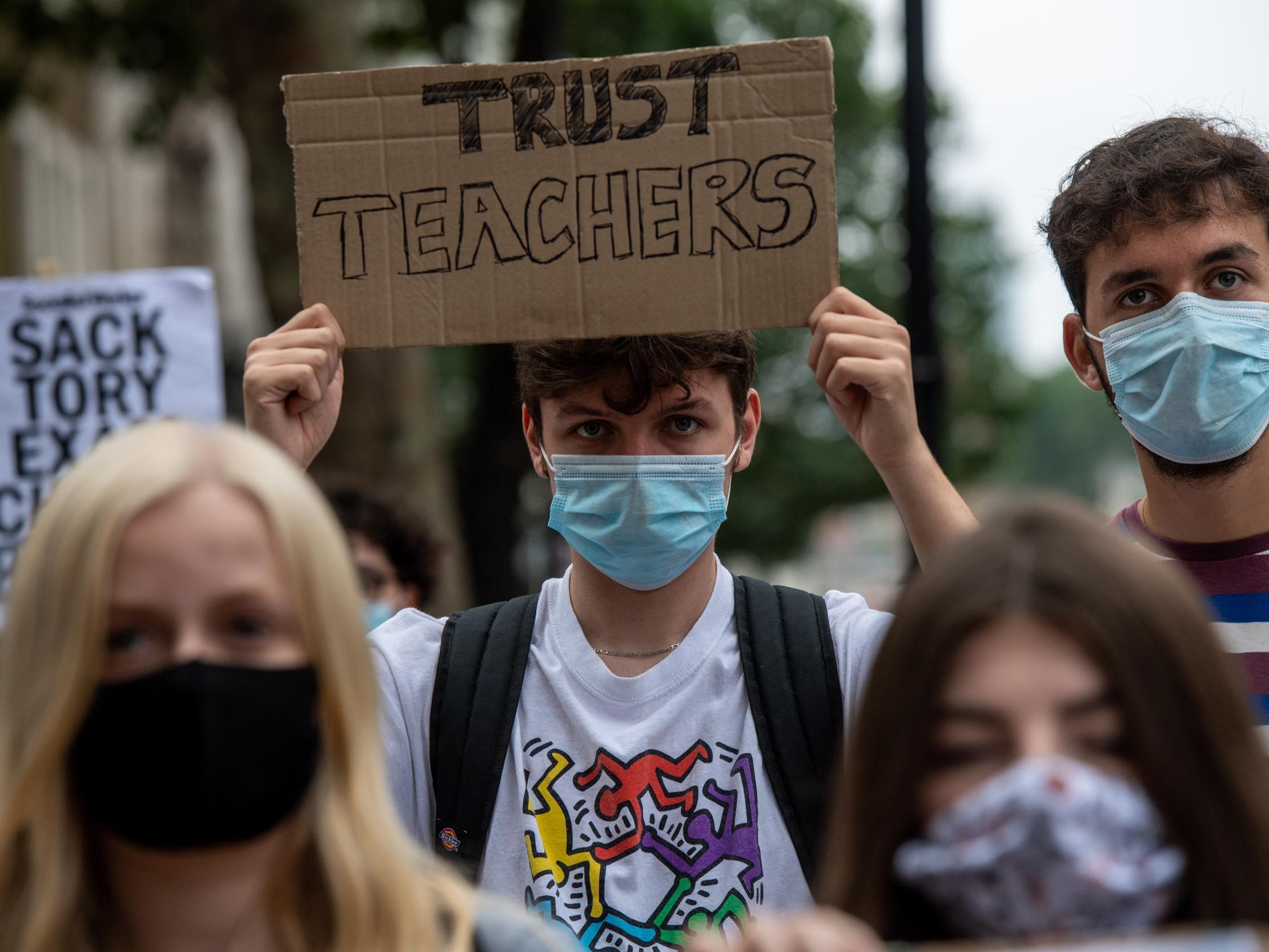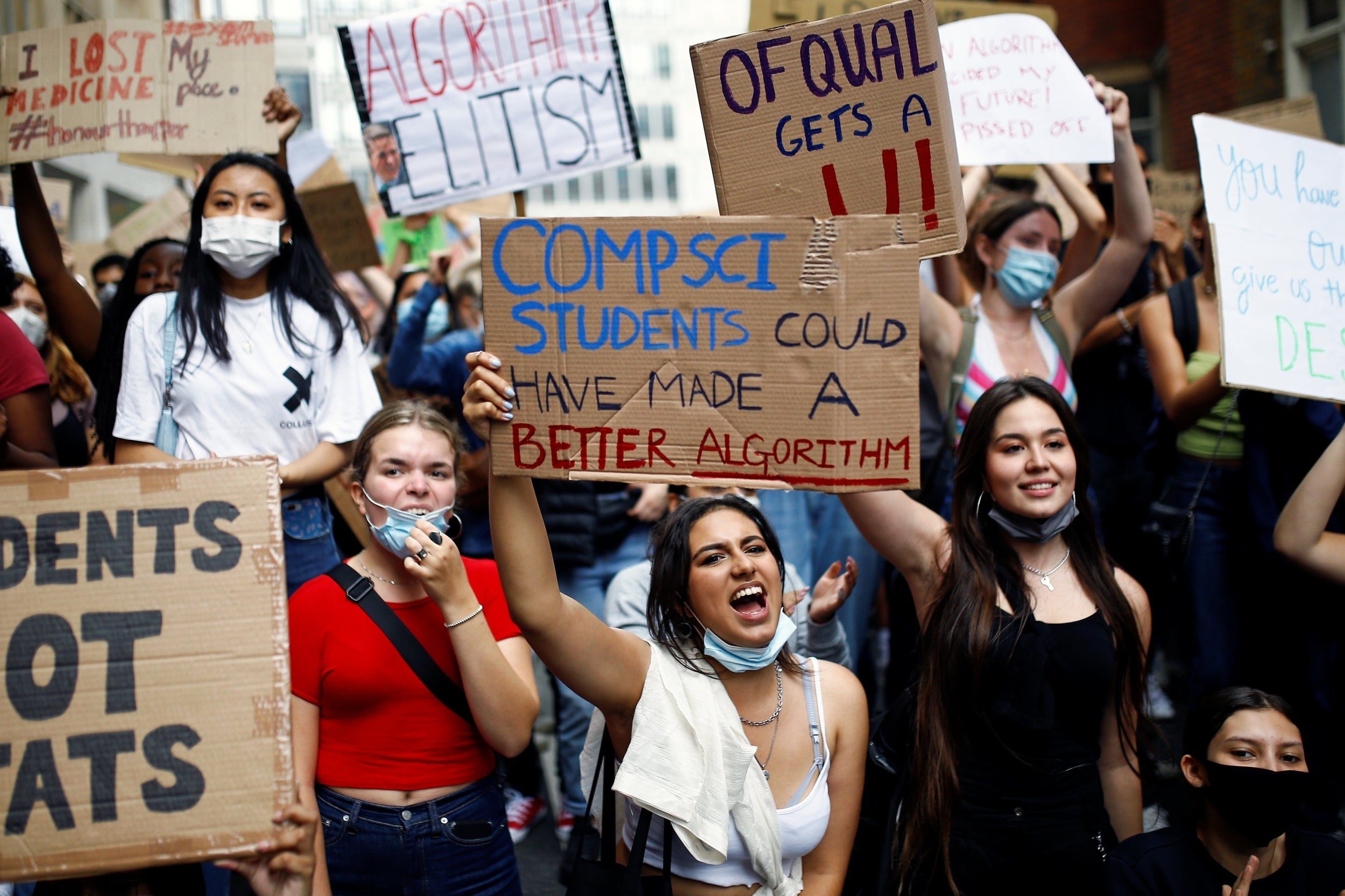GCSE results: Students could face ‘scramble’ for places as better results expected than usual
Leading association says there may be ‘increased demand’ for spots

Your support helps us to tell the story
From reproductive rights to climate change to Big Tech, The Independent is on the ground when the story is developing. Whether it's investigating the financials of Elon Musk's pro-Trump PAC or producing our latest documentary, 'The A Word', which shines a light on the American women fighting for reproductive rights, we know how important it is to parse out the facts from the messaging.
At such a critical moment in US history, we need reporters on the ground. Your donation allows us to keep sending journalists to speak to both sides of the story.
The Independent is trusted by Americans across the entire political spectrum. And unlike many other quality news outlets, we choose not to lock Americans out of our reporting and analysis with paywalls. We believe quality journalism should be available to everyone, paid for by those who can afford it.
Your support makes all the difference.Oversubscribed sixth-form colleges face a similar “scramble” for places as universities when better-than-expected GCSE results are released on Thursday, following a government U-turn on how results are processed.
One London college warned students would have to be admitted on a first-come first-served basis, as it predicted more people will make their grades than usual.
GCSE students will get their results on Thursday – which will be teacher-assessed grades, after the government scrapped a controversial algorithm which downgraded tens of thousands of A-level results following outcry and student protests.
Nearly 40 per cent of grades were lowered in the moderation, which critics said hit poorer pupils the hardest.
Gavin Williamson, the education secretary, has since apologised for the “distress” caused by the abandoned policy which was intended to give fair results to pupils, who could not sit exams because of the coronavirus crisis.
After A-level students were able to apply for university courses with their teacher-predicted grades instead, some universities said they would have to defer places – especially for certain courses, such as medicine – amid an influx of students meeting their offers.
Sixth-form colleges will also probably see more demand from students due to higher GCSE grades than usual, according to the Sixth Form Colleges Association.
Some schools have tweeted about “limited places” in their sixth forms and expected “unprecedented demand” ahead of results day.
Nicky Graham, executive principal of Harris Academy Chafford Hundred school, told BBC Radio 4 there “will be an increase” in the number of pupils wanting to get on A-level courses.
She said the school with have a meeting with its current students on Thursday – when GCSE results come out – and if they are successful, they will go onto their chosen course.
However, she added: “It may mean it is a little bit more difficult for us to fit in as many students from outside the school as we would normally take in.”
“In many respects, the immediate challenges faced by sixth form colleges mirror those faced by universities – increased demand for places combined with pressure on space because of Covid restrictions,” James Kewin, the deputy chief executive of the Sixth Form Colleges Association, told The Independent.
“We’re likely to see a scramble for sixth form and college places tomorrow due to higher pass rates meaning deserving students could miss out,” Laura Rettie from Studee, an educational consultancy, said.
While for many colleges with lenient entry requirements this may mean business as usual, more selective sixth form colleges may see more students than normal meeting their requirements.
The London Academy of Excellence said it will operate on a “first come” basis this year. The sixth form in Stratford said it expected GCSEs based on teacher predictions will mean more students will meet its entry and subject requirements than normally would, and therefore “more competition” for places.
“Whilst we will do all that we can to honour the offers of those who meet the conditions, we have a finite number of places on each course and in the school as a whole, so unfortunately cannot guarantee places for those who meet their offers,” the sixth form said in a notice on its website.
Meanwhile, Andy Byers, a headteacher in Durham, said he was expecting a similar intake to usual.
Entry requirements for most schools and colleges will usually encompass most students anyway, he explained, although this may be different for very selective sixth forms.
When asked if Franklin College in Grimsby would be able to accept all applicants, the principal told BBC News: “We think we will.
“Our estimates are this year are we will be able to cope, but probably only just,” Peter Kennedy said, adding while the college may have been flexible with class sizes or the number of classes in the past, it may face constraints this year due to coronavirus.

A spokesperson for the Association for School and College Leaders (ASCL) said it may be “too early” to tell what the impact of higher GCSE grades on colleges’ capacity to take in eligible students.
However, the organisation said it expects an “upward trend” in results, which could have other implications as students could apply for courses with higher entry requirements that they would not have made otherwise.
“That could necessitate increasing class sizes in some courses and there may be pressure on the space that is available in some institutions,” Geoff Barton, the general secretary, said.
“We will watch closely how this unfolds and work with our members and the government to ensure the needs of students are met.”
A Department for Education spokesperson said that: “Sixth form colleges have access to capital funding through the Condition Improvement Fund. The government has provided an additional £560m in 2020-21 to help boost the condition of school and sixth form college buildings, on top of over £1.4bn already allocated this year.”
Join our commenting forum
Join thought-provoking conversations, follow other Independent readers and see their replies
Comments